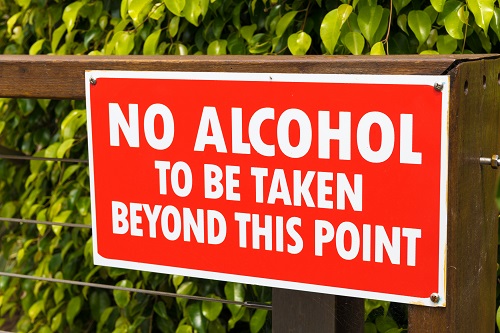
The speculation became reality: As Sports Destination Management reported in June, the sale and consumption of alcohol at 2022 World Cup stadiums in Qatar will be limited. A July 7 Reuters report quotes a source who claimed beer sales will only be allowed outside venues before and after some matches.
“At stadiums, the plans are still being finalized, but the current discussion is to allow fans to have beer upon arrival and when leaving stadium, but beer won’t be served during the match or inside the stadium bowl,” the source said. “Unlike previous World Cup fan zones, beer won’t be served all day long, but at restricted times.”
Of course, this likely won’t sit well with international soccer fans used to imbibing throughout matches. Plus, Budweiser is a long-time World Cup sponsor. But this year’s World Cup, slated for Nov. 18 to Dec. 21, is the first in the tournament’s 92-year history to be held in a Muslim country with strict alcohol regulations.
A day later, July 8, The Washington Post reported that “the favored option is serving beer with alcohol in stadium compounds before and after games and allowing fans to take non-alcoholic Budweiser Zero to their seats.”
 “FIFA World Cup fans will be able to enjoy Budweiser Zero and Budweiser during the tournament,” Anheuser-Busch reassured fans in a statement.
“FIFA World Cup fans will be able to enjoy Budweiser Zero and Budweiser during the tournament,” Anheuser-Busch reassured fans in a statement.
“We will be confirming and making things official in due course,” added a FIFA official.
Expected Economic Impact Drops
With an estimated 1.2 million visitors expected during the World Cup (down from a previous estimate of 1.5 million), Qatar is anticipating an economic impact of $17 billion (down from a previous estimate of $20 billion).
That still seems like terrific news, but here’s the dilemma — and it’s a big one: Doha, the tournament’s host city, only has 90,000 hotel rooms, which, according to FrontOfficeSports.com, is forcing organizers to get creative. Two luxury cruise liners, which collectively can hold about 10,000 guests, are renting rooms from $179 to more than $800 per night. Tents in desert “fan villages” can be reserved for more than $200 per night, and Qatar Airways and other airlines are offering shuttle flights from Doha to nearby cities.
“Qatar wants to use the tournament to showcase its rapid expansion from a small pearl-diving enclave to Gulf metropolis, energy-exporting power and transit hub,” Bloomberg.com reports. “Still, the tournament has been beset with controversies, including over the treatment of migrant workers, many from poorer countries.”
In 2021, The Guardian revealed that “more than 6,500 migrant workers from India, Pakistan, Nepal, Bangladesh and Sri Lanka have died in Qatar,” which was awarded the World Cup in late 2010.
Ticket Sales Brisk
As of late June — and despite the setbacks — ticket sales for matches remained brisk. According to WorldSoccerTalk.com, a total of two million tickets will be sold to fans, with an additional one million set aside for FIFA officials and World Cup sponsors.
Most of the tickets available to the public have been sold, with the majority of buyers outside of Qatar residing in Canada, England, France, Germany, India, Saudi Arabia, Spain, the United States and the United Arab Emirates. Another round of ticket sales began July 5 and will end Aug. 16.
More Teams for 2026 World Cup
While the 2022 World Cup will feature 32 teams, the 2026 World Cup — hosted by the United States, Canada and Mexico — will include 48 teams. The 32-team format has been in place since 1998, and the new expanded format will increase the total number of games played from 64 to 80.
SportingNews.com compared the current format with the new one:
The 2022 World Cup, the final tournament 32-team edition, will feature eight groups of four teams. ... The top two teams from each group advance to the Round of 16, which represents the beginning of the single elimination knockout stages.
Starting in 2026, to accommodate a 48-team tournament, FIFA reorganized the group stage into 16 groups of three teams each. The top two teams in each group will advance to a massive 32-team knockout stage featuring single elimination.
There were also two formats worked around a 40-team tournament, but FIFA preferred the 48-team setup.
“It’s not the first time that FIFA has amended the World Cup format in an attempt to continue to grow the value and popularity of its marquee event,” SportingNews.com reports. “With a greater global presence and the growth of the game trending upwards, FIFA has looked to include more countries, and thus generate greater worldwide interest in the event. The addition of matches contributes to an increase in broadcast and commercial revenue.”

